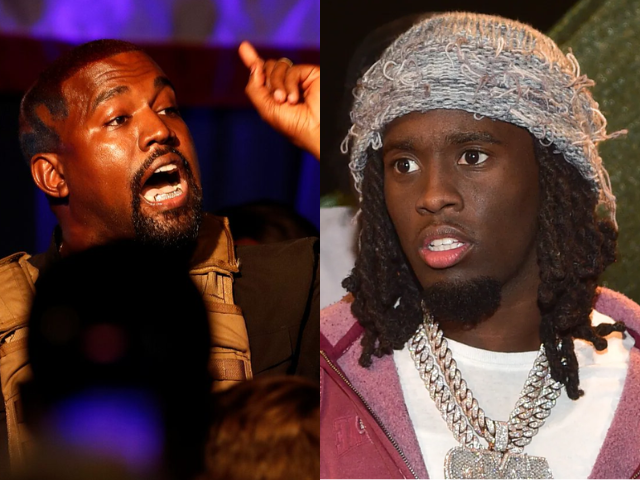In a recent and provocative statement, Kanye West took aim at popular streamer Kai Cenat, sparking discussions across social media platforms. During a fiery Twitch stream that previewed his highly anticipated track “WW3,” West did not hold back, directing pointed criticisms toward Cenat, who has rapidly emerged as a prominent figure in the streaming community. This unexpected confrontation, which took many viewers by surprise, has generated considerable buzz and debate among fans and observers alike.
West, known for his often controversial remarks, accused Cenat of perpetuating a culture that he believes undermines artistic expression and authenticity. “When you’re out there just streaming for views and likes, you lose touch with the real message,” West stated emphatically. His comments resonated with some who share his concerns about the commercialization of creativity in the digital age. However, they also prompted backlash from Cenat’s supporters, who argue that streaming is a legitimate form of entertainment that fosters community and connection.
Kanye West criticized Kai Cenat for prioritizing views over authentic artistic expression, igniting debate about the commercialization of creativity.
The context of the exchange is notable, as it occurred in the lead-up to West’s new music release, which he claims will address significant societal issues. By targeting Cenat specifically, West seemed to be making a broader statement about the state of media and entertainment, suggesting that the rapid rise of influencers like Cenat could dilute the depth and seriousness of artistic work. “Art should provoke thought, not just be a source of distraction,” West asserted, further igniting discussions about the role of content creators in shaping cultural narratives.
Cenat, for his part, responded with grace and humor, acknowledging West’s influence in the music industry while also defending his approach to streaming. “I’m just here to have fun and connect with my audience,” he said during a follow-up stream, emphasizing that his platform serves as a space for joy and community engagement.
This exchange highlights a generational divide in how entertainment is perceived and consumed, with older artists like West advocating for deeper meaning, while younger creators like Cenat embrace a more casual, interactive approach.
As the discourse continues to unfold, it remains to be seen how this clash will impact both West’s music and Cenat’s streaming career. The encounter raises important questions about authenticity, creativity, and the evolving landscape of entertainment in a digital world, ultimately challenging audiences to reflect on what they value in art and media.














